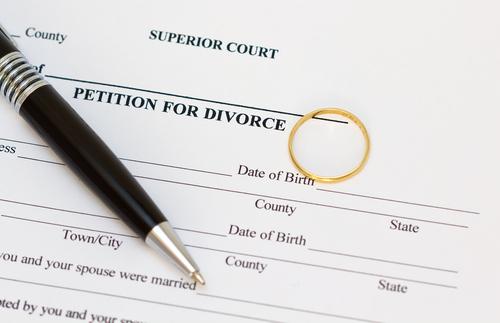Recent Blog Posts
Is Living Apart the Same as Legal Separation in Illinois?
 Perhaps your marriage began falling apart several years ago when your husband moved out of the house and into his own apartment while you remained in the marital home. Although your husband pays child support, spends time with the child, and helps you pay the bills, it is essential to recognize that this does not constitute a legal separation under Illinois law, and may have negative consequences.
Perhaps your marriage began falling apart several years ago when your husband moved out of the house and into his own apartment while you remained in the marital home. Although your husband pays child support, spends time with the child, and helps you pay the bills, it is essential to recognize that this does not constitute a legal separation under Illinois law, and may have negative consequences.
Although you may not see much difference, living apart and legal separation are two entirely different things. Now your husband is asking for a divorce, and his list of demands is making your head spin. Because you haven’t lived together for years, you may have assumed that if he ever asked for a divorce, your life would continue in much the same way. This is a situation that requires a highly experienced Will County, IL family law attorney at the Law Office of Ronald L. Hendrix, P.C. who can help you sort out all the issues. Attorney Hendrix has over 30 years of legal experience, which has given him deep insights into handling complicated family law cases.
When Do Child Support Payments Stop?
 If you are paying or receiving child support, you might wonder when these payments will end. Some assume that child support payments end when a child becomes a legal adult on his or her 18th birthday. However, this is not always the case. There are several situations where a parent might be required to keep making non-minor support payments even after the child turns 18.
If you are paying or receiving child support, you might wonder when these payments will end. Some assume that child support payments end when a child becomes a legal adult on his or her 18th birthday. However, this is not always the case. There are several situations where a parent might be required to keep making non-minor support payments even after the child turns 18.
If you need to establish child support payments or have questions about when these payments might stop, or if you have an ongoing child custody case, a Will County, IL child support attorney at The Law Office of Ronald L. Hendrix, P.C. can help. Attorney Ronald Hendrix is a court-appointed mediator and experienced family law attorney, giving him clear insights into how to resolve child-related issues.
How Is Property Divided in an Illinois Divorce?
 Property division is often one of the hardest issues in divorce. When a marriage ends, spouses must determine who gets the house, the retirement accounts, the cars, and other assets. This can lead to friction when spouses disagree about how to portion out these assets. Understanding how Illinois courts handle property division will help you make smarter decisions during your divorce.
Property division is often one of the hardest issues in divorce. When a marriage ends, spouses must determine who gets the house, the retirement accounts, the cars, and other assets. This can lead to friction when spouses disagree about how to portion out these assets. Understanding how Illinois courts handle property division will help you make smarter decisions during your divorce.
At Law Office of Ronald L. Hendrix, P.C., our Naperville, IL family law attorney can guide you through the complexities of asset division. Attorney Ronald Hendrix has over 30 years of legal experience, and across his career, he has helped many spouses through even the most difficult divorces.
How Does Equitable Distribution Work in an Illinois Divorce?
Illinois follows the principle of equitable distribution when it comes to dividing property in divorce. This means that when a court divides marital property, the goal is fairness rather than a strict 50-50 split. Couples are encouraged to come up with a property settlement on their own. When necessary, the court will do it for them.
How Can I Ensure My Separate Property Is Not Divided in the Divorce?
 In the midst of a divorce, you may worry that you will lose your separate property. This is a reasonable concern to have. After all, Illinois is an equitable distribution state, so marital property is divided fairly between the spouses no matter what. Separate property is not subject to division, but how can you be sure that your ex-spouse will not end up with your property?
In the midst of a divorce, you may worry that you will lose your separate property. This is a reasonable concern to have. After all, Illinois is an equitable distribution state, so marital property is divided fairly between the spouses no matter what. Separate property is not subject to division, but how can you be sure that your ex-spouse will not end up with your property?
Concerns about property division during divorce are common, and a skilled Naperville, IL family law attorney can represent you and advocate for your property rights. At the Law Office of Ronald L. Hendrix, P.C., we have decades of experience helping clients protect valuable assets during the divorce process. You can rely on us to provide you with straightforward legal advice and strong advocacy throughout your case.
What Qualifies as Separate Property in Illinois?
Illinois law is clear about what assets are set aside as separate property under 750 ILCS 5/503. These include:
Understanding the Asset Division Process in Illinois Divorces
 For many couples, asset division is one of the most contentious issues that they will work through when they get divorced. Both spouses usually feel entitled to marital property. Both spouses are almost always worried about their current and future financial stability.
For many couples, asset division is one of the most contentious issues that they will work through when they get divorced. Both spouses usually feel entitled to marital property. Both spouses are almost always worried about their current and future financial stability.
The truth is, the outcome of dividing your property and debt in divorce has the potential to impact your life for years, if not decades. If you are going through a divorce in Illinois in 2026, it is important that you understand how the asset division process works.
Our DuPage County divorce attorneys are here to help. We have over 30 years of experience with divorce in Illinois and will fight for you to get a favorable asset settlement.
Alternative Dispute Resolution Options for Divorce in Illinois
 More than two million people get married every year, according to the CDC. And every year, almost seven hundred thousand people get divorced. How are all these people getting divorced when more than 90 percent of divorce cases are settled out of court?
More than two million people get married every year, according to the CDC. And every year, almost seven hundred thousand people get divorced. How are all these people getting divorced when more than 90 percent of divorce cases are settled out of court?
Many people are surprised to learn that a courtroom is often not the best place to resolve a divorce case. Alternative dispute resolution, also known as ADR, offers a better solution. The general idea of ADR is to allow people a more cost-effective and less confrontational way to resolve their divorce.
Four main forms of ADR are available in Illinois for couples looking to file for divorce in 2026. You should always consult with a skilled Naperville, IL divorce attorney before you agree to enter any form of alternative dispute resolution.
How is Child Support Split Between Gay Parents?
 In Illinois, courts decide child support for same-sex parents the same way they do for heterosexual couples. They focus on the child’s best interests and each parent’s ability to provide support. The gender or sexual orientation of the parents does not impact these decisions.
In Illinois, courts decide child support for same-sex parents the same way they do for heterosexual couples. They focus on the child’s best interests and each parent’s ability to provide support. The gender or sexual orientation of the parents does not impact these decisions.
However, same-sex couples often face unique questions about biology, adoption, or surrogacy. These details can make a case more complicated. If you and your partner are separating or divorcing, it helps to understand how Illinois law decides who pays child support. Work with a Naperville, IL child support lawyer to find out how Illinois law directly affects your case.
How Is Child Support Determined for Same-Sex Parents in Illinois?
In Illinois, both parents are expected to financially support their children. Under 750 ILCS 5/505, the court uses the "income shares" model to determine support. The first step is to estimate how much each parent would spend on their child if they still lived together. The court then divides that cost based on each parent’s income.
How to Recognize 5 Sneaky Divorce Tactics
 Divorce can bring out the worst in people. With so much at stake, some spouses use underhanded tactics to try to get an unfair advantage. These behaviors can cause serious harm, not only financially and emotionally, but even in terms of your relationship with your children. Recognizing these tactics early is an important part of protecting yourself during your divorce and into the future.
Divorce can bring out the worst in people. With so much at stake, some spouses use underhanded tactics to try to get an unfair advantage. These behaviors can cause serious harm, not only financially and emotionally, but even in terms of your relationship with your children. Recognizing these tactics early is an important part of protecting yourself during your divorce and into the future.
If you are facing a tough divorce in Illinois, having an experienced Will County divorce lawyer is essential. Our knowledgeable attorneys can identify red flags, find hidden information, and make sure your case stays fair and honest.
Five Manipulative Divorce Tactics to Watch Out For
One Spouse is Hiding Assets From the Other
One of the most common forms of deception in divorce involves money. A spouse who wants to pay less child support or alimony may attempt to hide income or property to keep it from being counted. In Illinois, under the Illinois Marriage and Dissolution of Marriage Act (750 ILCS 5/503), marital assets are supposed to be divided equitably, which means fairly, taking many factors into account. When a spouse hides property, that fairness disappears.
If Both Parents Are on the Birth Certificate, Who Gets Custody?
 When a child is born in Illinois and both parents are listed on the birth certificate, many people assume that means they automatically share equal custody rights. While this may seem logical, reality is more complicated. The birth certificate confirms who a child’s parents are, but it does not say anything about custody or visitation.
When a child is born in Illinois and both parents are listed on the birth certificate, many people assume that means they automatically share equal custody rights. While this may seem logical, reality is more complicated. The birth certificate confirms who a child’s parents are, but it does not say anything about custody or visitation.
Child custody (officially known as "the allocation of parental responsibilities" in Illinois) is decided either by agreement between the parents or by a court order. If you and the other parent cannot agree on custody, the court will step in and make decisions for you.
Having a top-rated and highly experienced DuPage County custody lawyer is the best thing you can do for your case. At Law Office of Ronald L. Hendrix, P.C., we know how to manage tough custody cases. Call us at 630-355-7776 today.
Starting the Divorce Process in Will County, Illinois
 Ending a marriage is never easy. If you have reached the point where divorce is the only option, it helps to understand how the legal process works. While there are some basic elements of divorce, every case is unique. Working with an experienced Naperville, IL divorce lawyer ensures that you have the best chance at a fair decree for your family.
Ending a marriage is never easy. If you have reached the point where divorce is the only option, it helps to understand how the legal process works. While there are some basic elements of divorce, every case is unique. Working with an experienced Naperville, IL divorce lawyer ensures that you have the best chance at a fair decree for your family.
Determining Your Eligibility for Divorce in Illinois
To file for divorce in Illinois, at least one spouse needs to have lived in the state for at least 90 days. If you meet this requirement, you can file your case in the county where you or your spouse lives. For example, if you live in Joliet or Bolingbrook, you can file in Will County Circuit Court.
You can still file for divorce even if your spouse lives in another state. However, if your spouse lives outside Illinois, the court may have limited power to make decisions about certain matters, such as property in another state or custody of a child who lives elsewhere.

















